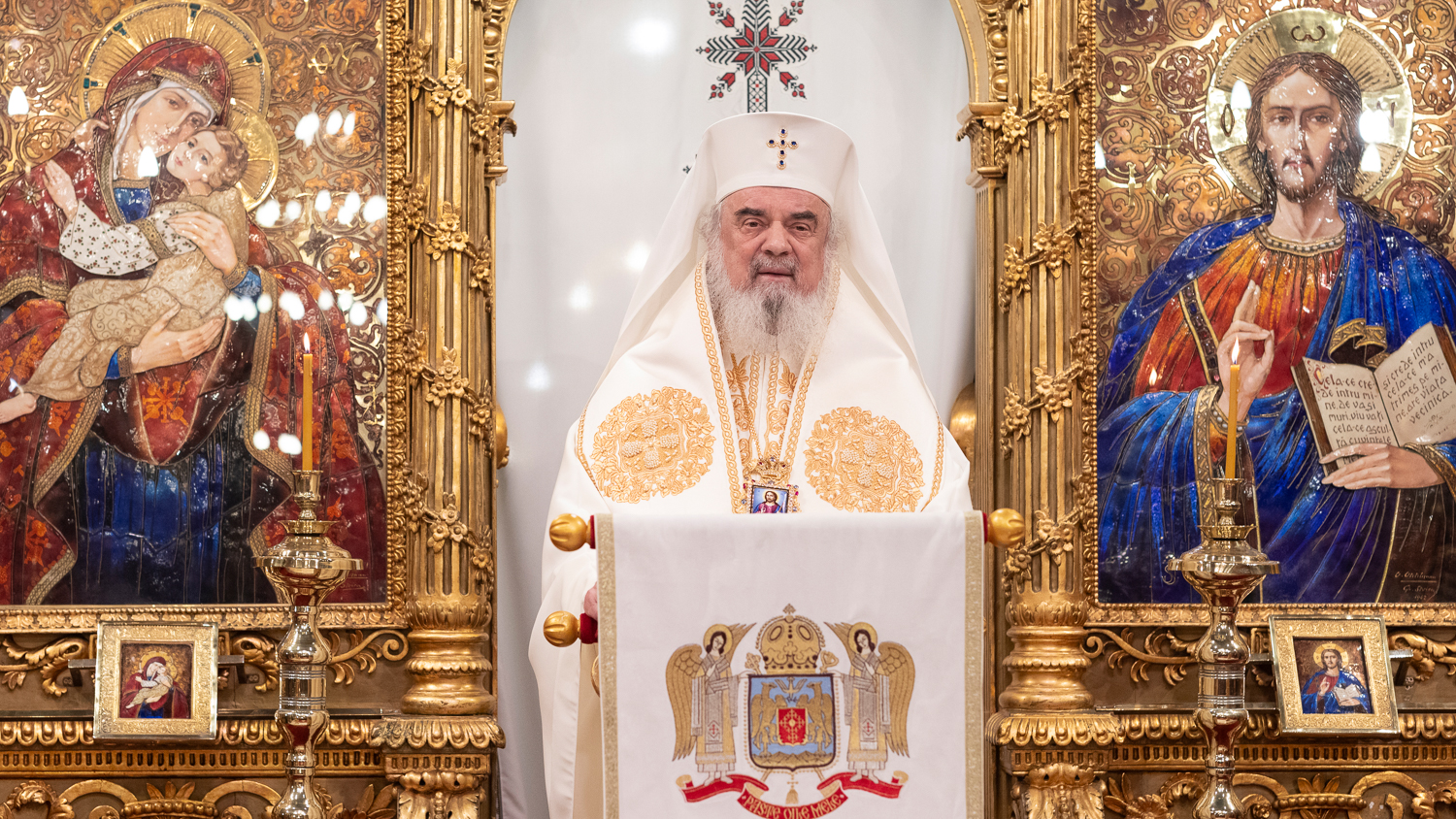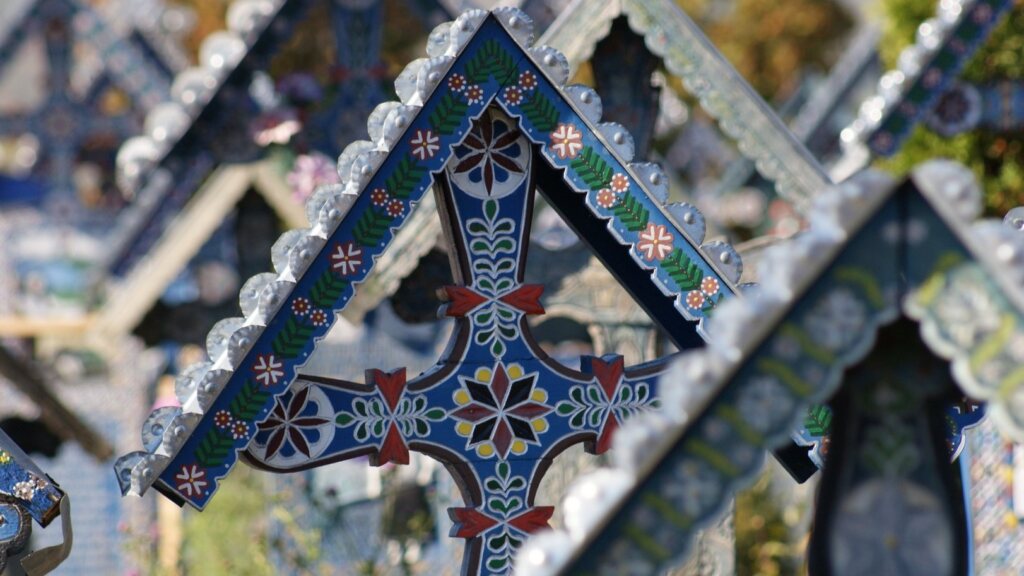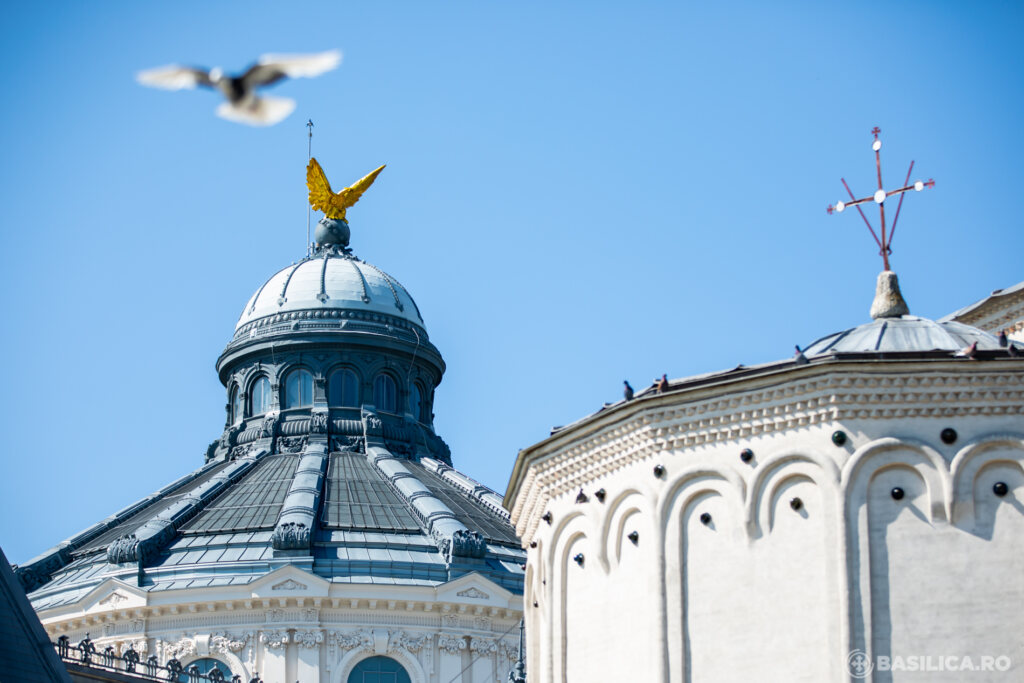His Beatitude Patriarch Daniel of the Romanian Orthodox Church emphasised the importance of gratitude for the gift of the past and hope for the future at a solemn service performed on New Year’s Eve at the Patriarchal Cathedral in Bucharest.
At the thanksgiving service officiated Sunday night, Patriarch Daniel stressed the importance of time as a gift from God. His Beatitude cited the soon-to-be-saint Dumitru Stanilaoe, who defined time as the interval between when God’s love calls man and when he responds voluntarily to God.
“Christians are called to live the time of their life as a gift received from God, which must be cultivated through love for God and others to participate in eternal life in the Kingdom of love of the Most Holy Trinity.”
Following his proclamation designating 2024 as a Commemorative Year of all the holy unmercenary healers and a Solemn Year of pastoral care of the sick, Patriarch Daniel urged everyone to uphold inner peace by engaging in virtuous deeds and prayer. Furthermore, he urged promoting peace among nations amidst the prevailing armed conflicts.
Please find below the full text of Patriarch Daniel’s address on New Year’s Eve.
Gratitude for the gift of the past and hope for the future
Entering the new year 2024, we thanked God for the favours received from Him in 2023, and we prayed that He would make us worthy to increase in the right faith, in love for Him and for our neighbour and in all good deeds (Prayer of thanksgiving at the Service at the turn of the year).
The Service that has been performed now, at the turn of the year, represents a disposition or a spiritual state concerning the time of the year that has concluded and the time of the year that is beginning.
This Service is a bridge of gratitude and hope between the years. Therefore, the most suitable work for spending the previous year and welcoming the new year is the prayer of thanksgiving performed in the Church of Christ, the King of the ages (Acts 1:7; Hebrews 1:2).
According to the resolution of the Holy Synod no. 630 of February 17, 2011, the Akathist of our Lord Jesus Christ is read at the Service that takes place on the night at the turn of the year because, on January 1, we celebrate the Circumcision and the naming of the Baby Jesus, which means “God saves” or “God is Saviour”.
By persistently invoking the saving name of our Lord Jesus Christ, the Creator of the world and the King of the ages, the lives of those who pray are sanctified, as well as the time and space in which people pray.
The new year we have entered is a new gift that we receive from God. That is why, especially now, at the turn of the year, we have to think more about what the gift of time means for people’s lives.
In this sense, St. John Chrysostom asks: “What do we gain from this (earthly) life if we do not use it to gain the future (heavenly life)?”
While time is the creature’s mode of existence, eternity is God the Creator’s mode of existence.
Father Dumitru Stăniloae notes that time is the interval between the call of God’s love to man and man’s free response to God.
More precisely, Father Stăniloae states that: “the joy of intra-Trinitarian love coexists with waiting for the human person’s response and with the sadness of its delay: “Here I am! I stand at the door and knock. If anyone hears my voice and opens the door, I will come in and eat with that person, and they with me” (Rev. 3: 20). For God, time means the duration of waiting between His knocking on the door and our act of opening it. He does not force His way into people’s hearts. In this sense, time also implies the freedom and respect granted by God to conscious creatures. Union with Him in love cannot be achieved without people’s free response to His offer of love.”
We open the heart’s door through prayer and the daily reading of a text from the Holy Scripture because God the Word is mystically hidden in the words of the Scripture and is offered as light and nourishment for the soul and delight for the mind and heart.
In the life of the Church, the time of salvation is lived by the faithful both as a redemption, through repentance, of the time lost in sin, and as an opportunity to develop their talents, as a preparation for the life of eternal communion in love with God and fellow men (The Parable of the Talents).
In the Church, time is utilised to its fullest capacity through sanctification (“Let us commend ourselves to Christ our God” – we ask during the litany).
Man can only achieve sanctification through communion with God, the One Who is Holy, Good and Merciful.
The most famous saints in Orthodoxy are not the most outstanding scholars but those who showed their kindness to others. Man reaches holiness after freeing himself from pride and selfish passions, and love and kindness become the norm of life, while prayer becomes the breath of his soul. Thus, man himself becomes a living prayer, a permanent dialogue with God.
The calendar of our Church is the screen of lives sanctified in time and entered into eternity, into eternal life. In the “laboratory” of prayer and holiness represented by the Church of Christ, the great spiritual Fathers, as bearers of Christ’s love and holiness, become teachers and supplicants for us.
Therefore, Christians are called to live the time of their life as a gift received from God, which must be cultivated through love for God and others so as to participate in eternal life in the Kingdom of love of the Most Holy Trinity.
For this reason, the Church’s entire social-philanthropic endeavours encompass not only a moral but also a mystagogic-spiritual aspect, representing a meeting between man and Christ, Who loves the poor and desires to assist them via merciful people (Matthew 25: 31-45).
The year 2024, which we are entering, is declared in the Romanian Patriarchate as a Solemn Year of the pastoral care of the sick and a Commemorative Year of all the holy unmercenary healers.
Thus, we consider intensifying the care of those in spiritual and physical suffering.
Every year, we deepen spiritually, theologically and factually, one of the themes that the Church considers a priority in pastoral care. Pastoral care for the elderly constituted a central focus of our missionary and cultural-social endeavours in the previous year, 2023. We expand our pastoral ministry this year by intensifying the pastoral care of the sick by word and deed.
Also, let us cultivate the peace of our hearts received from Christ through prayer and good deeds, and let us pray for peace between peoples in these troubled times of armed conflicts. Let us value the gift of health and show high responsibility for our own health and that of our peers.
Let us pray to God to bless the crown of the year which we have entered, to give the Romanian people in the country, from the vicinity of its borders and the Romanian diaspora, strong faith, peace and joy, health and much help in all good deeds, to the glory of the Most Holy Trinity and our salvation!
Many and blessed years!
† Daniel
Patriarch of the Romanian Orthodox Church
Photography courtesy of Basilica.ro / Raluca-Emanuela Ene
Follow us on X (Twitter): @BasilicaNews






